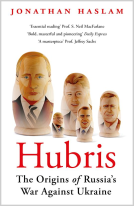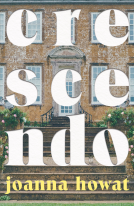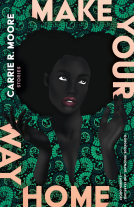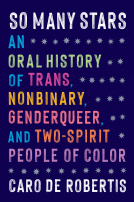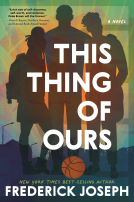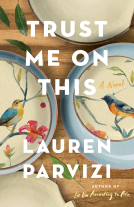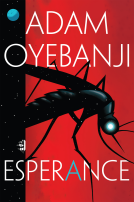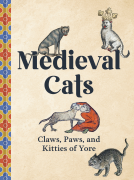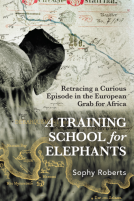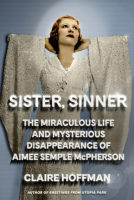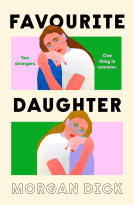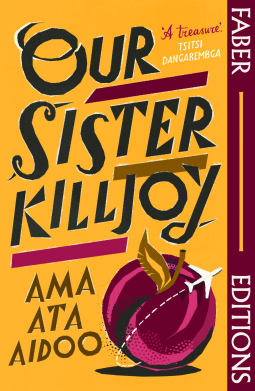
Our Sister Killjoy
by Ama Ata Aidoo; Ayesha Harruna Attah (intro)
This title was previously available on NetGalley and is now archived.
Send NetGalley books directly to your Kindle or Kindle app
1
To read on a Kindle or Kindle app, please add kindle@netgalley.com as an approved email address to receive files in your Amazon account. Click here for step-by-step instructions.
2
Also find your Kindle email address within your Amazon account, and enter it here.
Pub Date Feb 13 2025 | Archive Date Mar 06 2025
Talking about this book? Use #OurSisterKilljoy #NetGalley. More hashtag tips!
Description
'Ver do you come from?' she asked Sissie.
'Ghana.'
'Is that near Canada?'
Sissie is leaving Africa for the first time, arriving in Europe on a scholarship to experience the glories of a Western education.
In Germany, as guest of honour over embassy cocktails, she cringes at her countrymen.
In a Bavarian castle, she is seduced by a lonely local mother to Little Adolf.
In freezing London, she witnesses ‘been-tos’ sharing myths of an overseas idyll.
In between continents, she writes a letter on the plane to her exiled former lover.
But it is not sent. She will tell these tales back at home.
Ama Ata Aidoo's landmark debut Our Sister Killjoy exploded into the world in 1977. With its blistering feminist satire of the African diaspora, colonial legacies and toxic racism, expressed in a radical literary form – prose poetry, letter, manifesto – its provocative impact remains unmatched.
'A wondrous discovery.' Chimamanda Ngozi Adichie
'A treasure: one of the works that inspired my own literary journey.' Tsitsi Dangarembga
'Aidoo has reaffirmed my faith in the power of the written word.' Alice Walker
'Modest, lyrical, reflective and intelligent . . . Deserves as wide an audience as it can get.' Angela Carter
Available Editions
| EDITION | Paperback |
| ISBN | 9780571388004 |
| PRICE | £9.99 (GBP) |
| PAGES | 174 |
Available on NetGalley
Featured Reviews
 Mandy J, Reviewer
Mandy J, Reviewer
First published in 1977, this seminal work of African literature is as relevant today as it was then and could have been written at any time over the last 50 years. Nothing much has changed. It’s a satirical and biting look at colonialism, neo-colonialism, the African diaspora, racism, white privilege and power. It tells the story of Sissie, a young woman from Ghana, who is given a scholarship to study in Europe, and who travels to Germany and then England, sharply observing the new world around her. She contrasts that life with the one she has left behind and tries to make sense of the colonial legacy. It’s not composed as a straightforward narrative, but is a blend of lyrical prose, poetry, a letter and her reflections, which are always to the point and usually critical. It’s a book with a message rather than an engaging story but none the less powerful for that. Intelligent, perceptive and thoughtful, I very much enjoyed it, even if I couldn’t exactly relate to Sissie as a character. But I don’t think that was the point. Well worth discovering, and I’m glad to see a new edition, which I hope will bring the book to a new generation of readers.
 Educator 388984
Educator 388984
This book was originally published in 1977 but is being republished by Faber Editions and I received a copy through Netgalley.
Shockingly because she is very accomplished and a respected intellectual, I had never heard of Ama Ata Aidoo until I read the introduction by Ayesha Harruna Attah, where she explains that Ama Ata Aidoo is widely read in Ghanaian schools, and that she was the first African woman to have her plays published when she was only 24. She later got involved in politics and kept publishing plays, poetry, novels.
This novel Our Sister Killjoy follows Sissie as she leaves Ghana, in the 1970s, at a time where journalists and students were fleeing the country, and moves to Germany, then visits London before returning. It's not a long novel but it's beautifully written - a mix of prose and poetry, something I don't normally enjoy but the poetry wasn't too lyrical and it worked well. Sissie can't have a good life in Ghana but can't settle in Germany where she stands out as a young Black woman, people staring at her openly, becomes friends with a white woman who seems fascinated by her Blackness and her identity, superficially; then in London she is shocked to see so many Black people struggling to survive and to belong in a place that doesn't want them. She finds them badly dressed, they look poor, they certainly don't look like they have found a better life. The last scene (no spoilers) shows her flying home having realised that only there she can be valued for her true worth.
I found it really beautiful and poignant to read without being corny or cliché, I loved the voice of Sissie, ironic, unsentimental, direct; the whole book was a gem.
It was an interesting book to read considering all the political context we are going through right now, I feel like the publishing of this new edition of the book is needed and I do hope it’s going to be read by a lot of people as the book is amazing.
The story follows a young Ghanaian woman that moves to Germany in the 90s, with hopes for a better life, but she is hit with racism, insulting curiosity and judgment. I feel like any immigrant can relate to it, but more or less, this story is about the political context of a person’s skin color.
I will leave you with a short passage from the book, the one that convince me to read it.
“For the rest of her life, she was to regret this moment when she was made to notice differences in human coloring”
 Reviewer 1189404
Reviewer 1189404
The publication of Our Sister Killjoy by Faber&Faber is a part of their wider series of brining the classics of Black and African literature to modern British audiences. In this case, Ama Ata Aidoo's novel was first published in 1977, but has been difficult to access in the UK in the years since. The first thing that stood out to me was just how modern it feels; if it had been written by a diaspora writer today, it would have been hailed as ground-breaking, innovative and fresh in terms of both form and content (especially compared to the more commercial family saga types discussing similar issues that often get published). The book is a blend of prose narration of the story of Sissie, the eponymous 'Our Sister', a Ghanaian young woman who goes abroad on a government scholarship, poetry and polemical dialogues.
The book is divided into three neat parts. In the first one, Sissie, now in Germany, strikes a friendship (and maybe something more) with a local white housewife. In the second one, Sissie observes the lives of Black migrants in London, and in the third one, she has a heated debate with a plethora of (male) African migrants living abroad, trying to persuade them that their place is at home, not in immigration. The style, uniquely its own, has some echoes of the works of Jamaica Kincaid, which were to come later.
Ama Ata Aidoo is uncompromising. She presents a singular vision of her, and Africa's, relationship with the West, highly critical of colonialism and immigration to the West. You can agree or disagree with the specifics of her arguments, but the sheer clarity of her vision and her cutting and precise prose are undeniable. I really enjoyed the first part, because structurally it is the closest to more traditional fiction, with scenes, dialogues and characters. Sissie's relationship with Marija, the German housewife, is laid bare, but is also full of nuance. Sissie's questioning of her own sexuality and the question of what exactly does this African woman symbolise for Marija were particularly interesting to me.
Given that Ama Ata Aidoo made space for queerness in her book, it was a bit disappointing to see that she did not take it into account when discussing the ethics of immigration in Part III. I was reading this alongside A Different Hurricane by H. Nigel Thomas, a story of two gay men from St Vincent who end up back in their very homophobic motherland after living abroad, and it really made me think that such a scenario seems not to have occurred to Ama Ata Aidoo. Ultimately, her argument against immigration is based on the triumph of the collective over the individual. As someone who grappled with similar issues regarding immigration, albeit in a very different context (I was born during the most populous brain drain of my country of birth, and eventually choose to leave quite early on in life, too), I found myself siding with Sissie's opponents, as I could not see her make any space for individual agency, happiness and freedom in her arguments. At some point Sissie herself could not come up with an answer to a top rated medical scientist, who complained that his country of birth does not have the equipment for him to do his research, and that his work would be wasted if he were to be a village doctor instead of a leading researcher. I do respect Sissie's (and the author's) position, I just do not accept it for myself, and I would never try to impose it on others.
It was also interesting to see that Sissie created an opposition of migration and homecoming based on development, as that idea is completely absent in the discussions of ethics of migration from my country of birth, where all the conversations are focused on staying to resist the oppressive government, or leaving to pursue your own safety and happiness, rather than staying to assist with the development of the country. Although Sissie mentions civilian and military dictatorships as a factor in migration, they seem to be accepted in passing, akin to a natural disaster one cannot prevent, rather than a political regime one has a moral duty to resist.
It was interesting to see that Sissie, who mentioned 'Russia' and China a couple of times, still sees the world primarily as consisting of 'Africa' and 'the West'. The 1970s were a key point for the development of Communist regimes 'soft power', especially in cases of developing and non-aligned countries. There was (and still is) a dedicated university in Moscow, named after Patrice Lumumba, specifically designed to educate international students from Global Majority countries. The international student communities of the 1960s and 70s introduced thousands of Africans to the Soviet Union, and facilitated the creation of a Black community, primarily consisting of mixed race descendants of these students, in the country, then and today. Our Sister Killjoy is placed, both narratively and conceptually, firmly on one side of the Iron Curtain. It was curious to read Our Sister Killjoy in tandem with Thuan's Chinatown, a book that places its heroine in a much broader and multi-faceted world. The world of Our Sister Killjoy feels, by contrast, rather insular. I would have been interested to see what Ama Ata Aidoo would have had to say about a broader world.
 Reviewer 494590
Reviewer 494590
I had not heard of Ana Ata Aidoo until this book came up on Netgalley, a new novel in the Faber Editions. I think this series is always interesting, and worth a look, so I requested it.
Initially it was hard to get into; it's part novel, part prose poetry, and part letter, so I found the writing style a bit disjointed. Sissi is part of a program that takes her from Ghana to Germany, then England and then back to Africa. She managed to fit a lot into a short book. I feel like I need to read it again to fully appreciate it, but I'm glad I have had the chance to do so, and pleased it will find a new audience as a part of the Faber Editions series. I will have to look out for more of her work.
*Many thanks to Netgally and the publishers for a copy in exchange for an honest opinion.*
 Ashleigh W, Reviewer
Ashleigh W, Reviewer
This book is a masterpiece. It is searing, unflinching, uncomfortable, honest and absolutely incredibly written. You could spend months and months analysing the poetry and the prose, the interplay of the imagery and the beauty of the writing. The story of how Sissie travels through Europe from Africa, the people she meets, the encounters she experiences, and the issues she’s highlights are as prescient now as when the book was written. It is a lyrical exploration of racism, colonialism and imperialism and it is unflinching in its portrayal of uncomfortable truths. Absolutely spellbinding.
Wow. I have not stopped thinking about this book since I finished it a week ago. If you’re able, I highly recommend reading it in one or two sittings.
In the introduction, Ayesha Harruna Attah writes of this book: ‘I would wager that her book was ruffling the dainty feathers of her male author friends.’ If that isn’t reason enough to pick up this short yet thematically rich and essential work of art, I don’t know what is.
Our Sister Killjoy by Ama Ata Aidoo was first published in 1977, and this edition is part of the collection of ‘rediscovered gems’ from Faber & Faber. I’m so grateful to have come across this beautiful little book thanks to Faber Editions, made even more special by an introduction from Ayesha Harruna Attah that I found myself rereading and appreciating even more after finishing the novel.
From Ghana to Germany to London and back, we follow Sissie as she navigates the baffling ignorance and unchecked privilege of white Europeans, alongside the sheer shock of witnessing the realities of some from her own diaspora. Aidoo offers searing and unapologetic commentary on the duplicity of colonialism and reflections on implicit racism, both violent and veiled, all woven through sharp observations on the often unfathomable nuances of human relationships.
Perhaps the most striking aspect of this book is the way Aidoo seamlessly shifts between prose and poetry, with many of the poetic sections carrying immense power even when read in isolation. Wow.
Timeless, profound, and vital, Our Sister Killjoy is an essential read. Thank you to the Faber Editions team for bringing this gem back into the world. I can’t wait to get my hands on a physical copy to annotate, share, and revisit time and time again.
Thanks to NetGalley and Faber & Faber for the e-arc. All opinions are my own.
TWs/CWs:
Graphic: Racism and Colonisation. Moderate: Rape, Sexism, Sexual assault, and Religious bigotry. Minor: Racial slurs and Toxic relationship
 Sarah S, Librarian
Sarah S, Librarian
I am trying to read more books from around the world and was very excited to see this book by a Ghanaian author appear as being reprinted. It was like nothing I've every read before being part poetry, part play script, part epistolary novel while also being a hugely impactful book about the thoughts of an African woman leaving her country to come to the places that irreversibly changed her home.
I very much liked Sissie's voice as she grew in confidence and understanding and it also gave me insight in to Ghana's past - to my shame I only know it now as a favoured birding destination of my late father in law.
While the book itself is now almost 50 years old many of the issues and points Sissie/Aidoo raise sadly haven't changed at all.
It took me a little time to get used to the various styles of the book but I really liked it.
Ama Ata Aidoo is a new name for me and I did struggle a little, at times, with the style of the book which feels part memoir, part novel and part poetry.
It tells the story of Sissie but also of many others who came from the colonies to make their mark (or their lives) in Europe.
The first part deals with Sissie in Germany where she is befriended by a woman who becomes almost besotted with Sissie. The next part is about Sissie's time in London where she sees what living in England has done to her compatriots. The final part is a letter about and to those who have left and returned home.
It's an interesting look at emigrants and the language is, at times, very beautiful but it also doesn't let you rest on your laurels and think that life is easy for those who choose to leave their home for a better life, those who return or those who stay away.
Thankyou to Netgalley and Faber & Faber for the advance review copy.
 Media/Journalist 1098280
Media/Journalist 1098280
A lyrical and biting exploration of colonialism, racism, privilege and power, Our Sister Killjoy is a still prescient narrative that touches on the experience of the African diaspora in Europe through Sissie, a Ghanaian scholar who spends time in Germany and England. Ama Ata Aidoo seamlessly merges poetry and prose to expose the heart of the ignorance with which her people are treated through unflinching observations and powerful imagery, this short novel will stay with readers long after they have turned the final page.
Thanks to NetGalley and the publishers for access to this ARC.
I had never read 'Our Sister Killjoy' and found it thought-provoking, gritty and engaging. The intro by Attuh is perfect for first time readers such as myself and it provided an important foundation going into the novel blind. This is a good edition and I plan to add a physical copy to my collection soon. Very poignant.
Some books resonate across generations, their themes refusing to be silenced. Ama Ata Aidoo’s Our Sister Killjoy, first published in 1977 and now reissued by Faber Editions in 2025, is one such novel. A searing critique of European imperialism, alienation, and the disillusionment of African intellectuals abroad, this book remains as urgent and thought-provoking as ever. For those who revel in literature that challenges, informs, and captivates, Aidoo’s work is an essential read.
Ayesha Harruna Attah’s foreword to this edition beautifully sets the scene and tone for the book, introducing readers to Aidoo’s legacy while providing historical and cultural context. It primes the reader for the journey ahead, offering valuable insights into Aidoo’s impact and the continuing relevance of Our Sister Killjoy.
At the heart of Our Sister Killjoy is Sissie, a sharp and observant Ghanaian woman who travels to Europe on a scholarship. Unlike many diasporic narratives that romanticise the Western experience, Aidoo flips the script—Sissie’s encounters in Germany and England are laced with disillusionment, cultural confrontation, and a deep yearning for home. The novel’s distinctive structure—blending poetry, prose, and political commentary—mirrors the disjointedness of the immigrant experience, making the reader feel Sissie’s displacement in every word.
Aidoo’s writing is masterful. Her prose is both lyrical and incisive, her wit razor-sharp. Through Sissie’s eyes, we see the absurdities of Western arrogance, the loneliness of the immigrant journey, and the moral reckoning faced by those who leave home in search of something better. The novel challenges the notion of assimilation, instead emphasising self-knowledge, resistance, and a return to one’s roots.
For those of us born into the Ghanaian diaspora, especially in the UK, Our Sister Killjoy carries an even deeper resonance. Sissie’s reflections on the immigrant experience expose the myth of Western superiority and the reality of alienation, themes that still echo in the lives of first-generation British-Ghanaians. The tension between embracing British influences while holding on to Ghanaian heritage is ever-present, making Aidoo’s message feel incredibly personal.
Moreover, Aidoo’s feminist perspective sheds light on the expectations placed on African women—both at home and abroad. Her portrayal of Sissie as a woman who rejects imposed societal norms feels especially powerful in a diasporic context where cultural expectations and Western ideologies often clash.
Reading Our Sister Killjoy in 2025 is a reminder of how relevant Aidoo’s work remains. With ongoing conversations about migration, identity, and postcolonial realities, Sissie’s story feels eerily contemporary. This book also fits perfectly into the 2025 Popsugar Reading Challenge category—‘A book where the main character is an immigrant or refugee’—but it is so much more than that. It is a feminist manifesto, an anti-colonial critique, and a love letter to Ghana, all wrapped in an evocative and innovative literary form.
For those new to Aidoo, this is an excellent introduction to her brilliance. For those revisiting her work, this reissue is a timely reminder of why she remains one of the most significant voices in African literature. Our Sister Killjoy is not just a book—it is an experience, one that demands to be felt, interrogated, and remembered.
***Thank you Netgalley and Faber for this ARC in exchange for an honest review.***
 Kristin S, Reviewer
Kristin S, Reviewer
This book was beautiful to read. The switch between poetry and prose was flawless and poignant, where the prose was informative and moved the plot along, and the poetry gave intense, emotional dialogue on colonialism, Western imperialism, love, and gender. Notably, the style swapping mid-sentence really drove home the emotional strain Sissie felt during her time abroad. I felt that the first sections were stronger than the last, but ultimately, the book was strong.
 Suzi M, Reviewer
Suzi M, Reviewer
Originally published in 1977, an interesting exploration of migration from Africa to Europe. A love letter to Africa. This short book is many things - part poetry, part prose.
Thank you to Faber and NetGalley for the copy to review - I wouldn’t have wanted to miss this one.
This was an interesting read, originally released in 1977.
It's like a mix of poetry and story. A different read. Covering lots of different topics.
Thanks to Netgalley and the publisher for an ARC in exchange for an honest review.
 Bookseller 1538377
Bookseller 1538377
I was so excited to pick up Our Sister Killjoy, especially knowing its influence on some of my favorite authors, like Tsitsi Dangarembga. Ama Ata Aidoo’s novel is a poetic meditation on the lives of Africans who leave home in search of education and opportunity, often supported by government scholarships, as is the case with Sissie. Through her journey, we witness her simmering anger, her resentment, and her growing disillusionment with both Europe and those Africans who become disconnected from their roots.
What struck me most was the novel’s shifting form, seamlessly blending prose and verse to offer a window into Sissie’s thoughts. This fluidity made her observations feel even more immediate and piercing, and I found myself saving several quotes to revisit later. Despite the novel’s serious themes, Aidoo also weaves in moments of sharp humor and irony, making Sissie’s voice all the more compelling.
For me, the final section was the most powerful, as it unpicks the long-term effects of a foreign education—not just on individuals, but on the countries they leave behind. Our Sister Killjoy is a bold, thought-provoking read that I’d highly recommend to anyone drawn to poetic storytelling, postcolonial literature, and incisive critiques of identity, migration, and colonial legacies.

